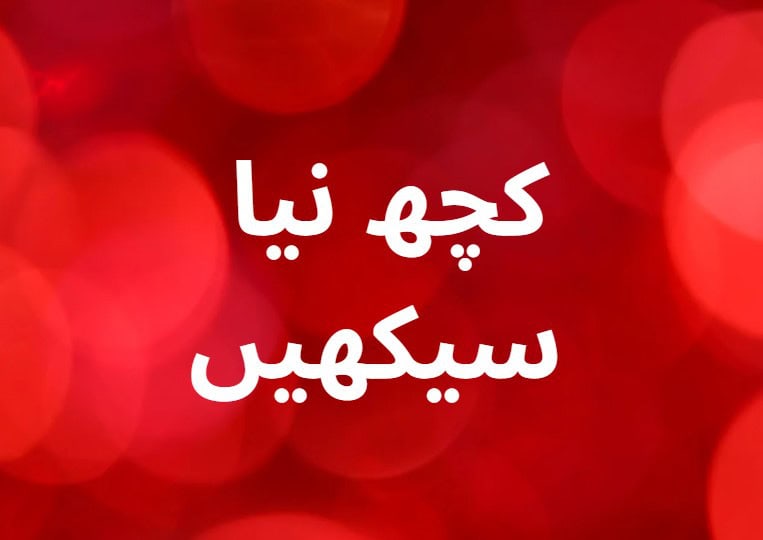This is a story which is narrated in Holly Quran. There are 3 sub-stories and each sub-story has its individual lesson. Overall, the most important lesson which I learnt is that it's not appropriate to make hue and cry on Allah's (SWT) decisions because what He knows through His wisdom is beyond our comprehensions. We should wait for His plans to be in actions and be patient and avoid instant reactions.
by Amr Khaled Translated by: The English Convoy – Dar al-Tarjama
The story is narrated in twenty-two ayahs
Prophet Musa (
alahe salam
) greeted al-Khidr (The Scholar) and asked him, "May I follow you so that you teach me of that knowledge you have been taught." Al-Khidr replied, "Verily! You will not be able to remain patient with me.". Prophet Musa (AS) used the word "follow" not "accompany."
Although al-Khidr implicitly refused at the beginning, Prophet Musa (AS) was insistent. He said "You will find me, in case Allah (so) decides, patient; and I will not disobey you in any command (of yours)." (TMQ, 18:69) Now Musa (AS) and al-Khidr had an agreement: Musa (AS) was to follow him provided that he does not ask about anything until he explains it to him.
Allah (SWT) chose to educate Prophet Musa (AS) by three incidents relevant to mankind and issues such as sustenance and livelihood, losing loved ones, especially one's children and getting married late due to the delay of one's sustenance, etc. We will see the events taking place in the beginning of the stories, and eventually we will observe how fate reveals the good that lies behind them.
So Musa and al-Khidr set off to the vast world of Allah SWT.
The First Journey
Prophet Musa (AS) and al-Khidr encounter a coast-to-coast ship whose passengers are poor but chivalrous as they offer to transport Prophet Musa and al-Khidr for no fee out of respect for al-Khidr. When they both embark, a bird comes down to the sea to take a sip of water and al-Khidr asks Prophet Musa (AS) how much water he thinks the bird has sipped. Prophet Musa (AS) answers that it is likely to be a drop or two. In response al-Khidr says that his knowledge and al-Khidr's knowledge combined are about the same amount as these drops in relevance to Allah's knowledge! Observe how al-Khidr uses illustrative methods derived from nature to convey his message and make his point clear. Al-Khidr punctures a hole in the bottom of the ship after making sure that none of the crew or passengers has seen him and without explaining himself to Prophet Musa (AS) which is very much like fate and destiny.
The Second Journey
They disembark and Prophet Musa (AS) believes that what al-Khidr has just done is evil. Then they arrive at a village and run into some young boys playing. Al-Khidr stops and gazes at one boy in particular and kills him. Allah says what can be translated as
The Third Journey
Now, they are in the village and they are both hungry, yet the villagers are miserly and none of them agrees to provide them with food. Al-Khidr keeps walking as if in quest for something. Then he starts restoring a wall in the village that was about to collapse. At this moment, Prophet Musa (AS) grows impatient with al-Khidr and remonstrates with him, as he cannot comprehend al-Khidr's contradicting behavior such as sabotaging the ship of the poor kind people and being kind to the undeserving miserly villagers!
Interpretation of Story One
Belonging to a group of needy villagers, the ship was of economic value to their village. The entire village depended on the small gains the fishermen made using this ship. It was on its way for fishing in a neighbouring village where an evil King happened to live. This king seized every good vessel that passed his village in order to add to his fleet. With this knowledge al-Khidr had to cause a minor damage to the vessel to protect it from a greater harm, for the King would not take a damaged ship. If al-Khidr had not intervened in this way, the boat's crew could have been killed or imprisoned. This could have lead to the loss of the provision of an entire village that was dependent on the ship.
The Meaning and Value of being Content: You never know when problems in your life could actually be a source of good for you! If you think back of times when you made big achievements in your life, you will find that these achievements had been preceded by some form of suffering. The beginning of the story of the slaughter of Isma'il (AS) (Ishmael) appears to be a plight, yet to this day the poor around the world are fed on Eid al-Adha, (the Greater Bairam) commemorating this event. If Hajar and her son Isma'il (AS) had not gone through their personal trauma, the spring Zamzam[8] would not have gushed out. If Yusuf (AS) had not been thrown in the well, Egypt would have suffered starvation.
The Rewards of Being Content: To be content is to thank Allah and to accept all that is pre-ordained by Him for his subjects without objecting. It also means being with Allah and complying with His will. The heart should be satisfied with Allah's choice. If a Muslim, repeats "I am content with Allah as my God, Islam as my faith and the Prophet Muhammad (SAWS) as my messenger," morning and evening and after every adhan (the call to prayer), Allah is bound to reward them and to forgive their sins.
Prophet Muhammad (SAWS) emphasizes in his teachings that the best thing a believer can do is to have faith in Allah and his messenger and strive in the cause of Allah. Whereas, the worst thing a Muslim can do is remonstrate with Allah over something that is pre-ordained by Him. Allah says, "Today I have completed your religion for you, and I have perfected My favor on you, and I am satisfied with Islam as a religion for you. And whoever is constrained in scantiness, (i.e., compelled by need) without unfairly (inclining) to vice, then surely Allah is Ever-Forgiving, Ever-Merciful" (TMQ, 5:3).
Interpretation of Story Two
Allah knew that the future of this boy was that he would become a tyrant. Therefore, the wisdom behind the birth of the boy could be that his father was destined for a higher rank in al-jannah in the event of his son's death. Perhaps Allah was to bless the parents of the boy with another more virtuous son.
The son may have also been killed to provide a lesson to the youth. If this boy had lived he would have been destined for hell but his death at a young age meant he was destined to enter al-jannah. Thus, his death was beneficial to the society, to his parents and himself.
Other Examples of being Content: I recently met a mother who had lost her young son she was devastated. I told her that sometimes there is wisdom behind the loss of a child at a young age. His death has given her the opportunity to pray and ask for forgiveness for him in order to be admitted in al-jannah. Hence, the son's death is mercy to both son and mother.
Allah said, "This is the Day the sincere ones will profit by their sincerity (Literally: their sincerity will benefit the sincere "ones"). For them are Gardens from beneath which Rivers run, eternally (abiding) therein forever. Allah is satisfied with them, and they are satisfied with Him. That is the magnificent triumph" (TMQ, 5:119)."
Interpretation of Story Three
The father of the two orphans knew that the villagers were very miserly so he hid the treasure under the wall until they were strong enough to unearth it. When al- Khidr passed by the wall he saw that it was about to fall and so he fixed the wall to ensure that the treasure would remain safe until the orphans reached maturity.
We learn from this story that if you are an honest and virtuous parent, Allah will always protect your children. The orphans had to wait longer for their treasure but this delay was beneficial and merciful for them. This story also teaches youth to protect their future by doing good deeds and by respecting their parents.
Mercy is the Essence of Life
The conclusion of these stories is that the destruction of the boat, the killing of the boy and the postponement of sustenance are all acts of mercy. Mercy is the core of life; motherhood and family embody mercy as does the Prophets. Prophet Muhammad (SAWS) is the epitome of mercy as detailed in the Qur'an, "And in no way have We sent you except as a mercy to the worlds" (TMQ, 21:107).
The three journeys that Musa (AS) undertook taught him the virtue of patience and equipped him with the necessary knowledge to complete his missionary work with the Israelites. His journey with al-Khidr taught him how Allah's decree solves the problems of individuals, consequently entire nations.
| M Junaid Tahir PeaceArticles.blogspot.com www.DailyTenMinutes.com |
___________
Junaid Tahir
| |
Latest tweet: 10 Tips to Improve Interpersonal Skills: 1. Practice Smiling Often. No one wants to be around someone who is a… http://t.co/JjsjQoImgj Follow @JunaidTahir  Reply Reply  Retweet 18:57 Jun-02 Retweet 18:57 Jun-02 |

